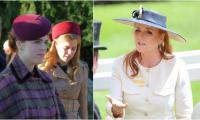Handshakes and hugs vs likes and emojis
The writer is an analyst and
commentator.
This weekend, a close friend lost his grandmother. Amina Yusuf Khan was in her nineties when she passed away. I met her only once. My friend on the other hand, novelist Shehryar Fazli, I meet often. His Naano was dead, after a long life of giving life to others, of inspiring her family and friends, of just staying alive. A long, rich, full life. Over.
Arriving at their family home a little later than I had planned to, I noticed the bus with the deceased’s body leave for the graveyard. Off I went to the graveyard. As I turned the car around, I realised we were going to go to the same graveyard in which I buried my grandfather five years earlier, in April of 2010. Daada had also entered his nineties. His nineties began nervously, when he was taken ill in the autumn of 2009. A few months later, his nervous nineties ended early, when he was 92. When he got sick, my youngest sister quit her job to spend time with him. I was too busy then. That same autumn, God’s infinite mercy sprung the delight of a new addition to my family. There was also work, of some sort. There always is.
Daada recovered reasonably well from the first time he was hospitalised. His next engagement with the hospital was shorter, and it ended in his passing away. He was my portal to everything that I could be, everything that I wanted to or want to be, and everything I should be. When he returned to the Maker, I lost many things, including the chance to consistently feel bad about not spending more time with him, not learning more from him. When he died, I was left with feeling bad, not consistently or episodically but rather feeling bad constantly. I will never learn Persian, or chess, because I spent my entire adult life putting off learning those two things from him. Until he died, I was always going to get to it. Honest.
Now that he is dead, there is a certain finality to my pathetic procrastination of the continuum of ‘how we do’. My children will have a few things that I can pass onto them, inshaAllah, that I got from Daada Abba, but not as many things as I could have given them. It is a wretched feeling. Not unique by any means, but wretched nevertheless.
When I got to the graveyard to attend the funeral prayers and the burial of Shehryar’s Naano, I did what one always does at funerals. Try to make eye contact with the bereaved family members, assure them of the deceased’s richness of life, and engage in building collective confidence that the deceased is in a better place.
Different people have different ways of processing death and different conceptions of the afterlife and the hereafter. I have always found it best to bat well within one’s crease at funerals. You go to them to show solidarity and to be an absorber of grief. This time, however, because of my friendship with Shehryar, perhaps because of the similarity of the ages of my Daada when he passed away and his Naano when she passed away, and perhaps because of the collocation of the graves, I also realised something much simpler. You go to funerals and burials and soyems and chehlums because that is ‘how we do’, here in this country, in this broad, vast, gorgeous culture.
Two close friends have recently had babies. Both are good friends. One is a newer friend, a wonderful person I met in my thirties who I intend to be in touch with indefinitely. The other is a very dear old friend from my teenage years.
I learnt of the births through Facebook. This seemed an interesting way to learn of the momentous happy life events for both these friends. I had been involved in discussing the logistics of both gentlemen’s’ movements in the weeks leading up to the respective births (as both are expatriate Pakistanis), and yet the big day(s) came to my attention on the same screen upon which I sometimes watch silly cat videos, and renditions of Justin Beiber’s Sorry in the voice of a mash-up of President Barack Obama’s speeches.
Several weeks later, I still haven’t called them to offer my congratulations. Theory number one? One is getting lazy. Another theory? That the manner in which information is processed when it is on a screen inside the Facebook user interface somehow diminishes the significance of that information, because of the wide and varied range of bits of data that I imbibe on that user interface. In short, if someone had sent me an SMS, or an email, or called me, or sent a card or letter, I’d probably have been much more diligent in responding with the warmth that such occasions merit, ranging anywhere from tears of shared joy to picking up the phone and saying, ‘alf mabrook, ya akhi!’.
Think for a moment about the jet stream of information and images that exercise our retinas and synapses through Whatsapp, Facebook, Twitter direct messages, and touch-screens that are sometimes bigger than the size of the first television sets we ever saw (have you seen the new iPad Pro? Monstrous magnificence).
This is all transformational. Perhaps the first thing all this data does is to generate a phantom togetherness, a false intimacy in which the viewing of something, or the casual click of ‘like’, or the addition of a heart emoji, or for the more emotionally constipated, the multi-racial ‘thumbs up’ (dear God) suffices as an adequate emotional response to new information, good, bad or ugly (there is also a thumbs down emoji, or my favourite, the emoji hug, good for both sincere and faux sentiment). Perhaps it is time some of us pause and take stock of how we process and conduct relationships across time and space.
As is often the case, I shared these thoughts with Shehryar, who despite reeling from his deeply personal loss, demonstrated, once again, his exceptional presence of mind, something he surely got from his Naano, by referring me to a new piece in the NY Review of Books this month titled, ‘We are hopelessly hooked’ by Jacob Weisberg. It is one we should all read for the sheer force of the statistics it presents. The two most startling ones? He cites one UK study suggesting that we check our phones 221 times a day. He cites another US study of college students that indicates a 40 percent decline in empathy over the last two decades.
Not all of us can be Shehryar. As a novelist and frequent contributor to the LA Review of Books, Shehryar is exceptionally well-read, and this habit produces focus, clarity and a breadth of ideas and thoughts. But all of us can be more conscious of what all of this data is doing to us, individually and collectively.
When someone we know experiences sadness, sometimes it may be enough to send an SMS, or click ‘Like’, but I can’t think of any scenario in which those options can trump a solid handshake, a pat on the back, a knowing locking of the gaze, or a real-life, real-time hug. Ever.
When someone experiences joy, sometimes an emoji may work, but it is hard to imagine there will ever be an emoji that can substitute for the sights and sounds of real, unadulterated shared excitement or happiness in person, or over the phone.
Our Pakistani heritage is resplendent with traditions that take up time and consume energy. Attending funerals and soyems is not supposed to be fun. For both spiritual reasons, and for the sake of the sinews that hold our rich and vivid social fabric together, it is vital that we do so, every chance that we have. The same goes for weddings, for new births. From walimas to aqiqas, and from soyems to chehlums, being there is one of the foundations of our unique and valuable culture. We should take great care to nourish these foundations in an age of unlimited data plans, and emoji-proliferation.
-
 Cancer-stricken King Charles At Breaking Point?
Cancer-stricken King Charles At Breaking Point? -
 Andrew Leaves King Charles No More Moves To Play: ‘Can’t Just Say We Got Nothing’
Andrew Leaves King Charles No More Moves To Play: ‘Can’t Just Say We Got Nothing’ -
 Sterling K. Brown Explains How Sharing His Kids' Photos On Social Media Can Keep Them Safe
Sterling K. Brown Explains How Sharing His Kids' Photos On Social Media Can Keep Them Safe -
 Keir Starmer Gives Major Advise To King Charles Amid Andrew Scandal
Keir Starmer Gives Major Advise To King Charles Amid Andrew Scandal -
 Nick Reiner Pleads Not Guilty In Famous Parents' Double Murder Which Shocked The World
Nick Reiner Pleads Not Guilty In Famous Parents' Double Murder Which Shocked The World -
 Benicio Del Toro On Losing Mom In Chldhood: 'I’m Still Dealing With It'
Benicio Del Toro On Losing Mom In Chldhood: 'I’m Still Dealing With It' -
 More Than 500,000 Without Power As Blizzard Hits US Northeast
More Than 500,000 Without Power As Blizzard Hits US Northeast -
 Winona Ryder Lands Secret Role In 'Wednesday' Season Three, Marking Reunion With Tim Burton
Winona Ryder Lands Secret Role In 'Wednesday' Season Three, Marking Reunion With Tim Burton -
 Andrew, Fergie’s Life Without The Bells And Whistles Turns Grimmer: ‘A Lot More Was Happening’
Andrew, Fergie’s Life Without The Bells And Whistles Turns Grimmer: ‘A Lot More Was Happening’ -
 Nicole Kidman And Keith Urban's Divorce Drama Deepens As Teen Daughters 'stick' By Their Mother's Side
Nicole Kidman And Keith Urban's Divorce Drama Deepens As Teen Daughters 'stick' By Their Mother's Side -
 William, Kate Desperate To Make Public Statement Distancing Themselves From Andrew
William, Kate Desperate To Make Public Statement Distancing Themselves From Andrew -
 Charli Xcx Details Boozy Second Wedding To The 1975's George Daniel: 'Everyone Was Hungover'
Charli Xcx Details Boozy Second Wedding To The 1975's George Daniel: 'Everyone Was Hungover' -
 Gracie Abrams Follows 'Kylie Jenner Playbook' With Paul Mescal Romance
Gracie Abrams Follows 'Kylie Jenner Playbook' With Paul Mescal Romance -
 Dua Lipa Shares 'Love Letter' With New Boyfriend After Emily Ratajkowski Confirms Romance With Her Previous Beau
Dua Lipa Shares 'Love Letter' With New Boyfriend After Emily Ratajkowski Confirms Romance With Her Previous Beau -
 Brazilian Beauty Influencer Passes Away After Suffering 'medical Emergency'
Brazilian Beauty Influencer Passes Away After Suffering 'medical Emergency' -
 Sarah Ferguson Turns Into A Bulldozer With Beatrice, Eugenie: ‘Help Me Out’
Sarah Ferguson Turns Into A Bulldozer With Beatrice, Eugenie: ‘Help Me Out’



